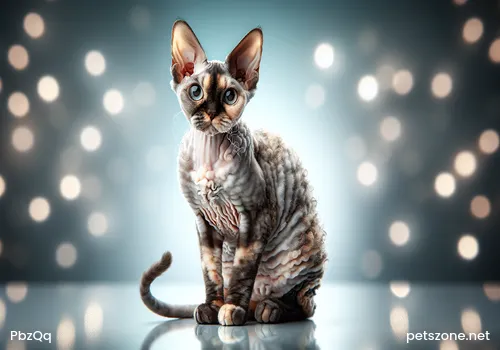What Are the Elusive Behaviors of Cats?

Owners probably know what kinds of activities cats are accustomed to doing daily, so they are usually not surprised by cats running wildly around the house. However, some sudden strange behaviors in cats can make owners both laugh and cry. In fact, cats are not as well-behaved as we imagine; these seemingly small-bodied little creatures can be quite a handful at home. Recently, what interesting and elusive behaviors have our feline overlords exhibited?
1. Sprinting after defecation
Some cats have very peculiar toilet habits. For example, cats often dash out of the litter box immediately after pooping. This phenomenon is so strange that owners can often first smell the fresh and passionately fragrant scent from their cat’s behind. Various theories have been offered to explain this behavior.
Some believe that running crazily after defecating is a survival instinct inherited from evolution, preventing predators from tracking the cat by scent. Feline veterinarian Letrisa Miller explains that although cats are atop many food chains, they are still preyed upon by larger animals.
Others say it is because the cat ate foreign objects—like hair—that come out with the feces, causing the cat to feel unclean and urgent to shake off the mess, resulting in the frantic running around the house. This explains the common scene of cats sprinting wildly after pooping.
Finally, doctors have offered their views that this may be a sign of discomfort caused by food allergies or infections, including urinary tract infections, kidney stones, or inflammation of the rectum, colon, or anal glands. Some think cats feel light and energetic after defecating and use their favorite activity—rushing around the house—to expend that energy.
Perhaps cats run to shake off any sticking dirt on their bodies. Some owners think cats sprint because they cannot stand their own smell. Maybe the reason is as simple as it looks—well, it’s a manifestation of happiness and joy.
2. Unusual squatting posture
Cats sometimes exhibit strange behaviors when calm, such as squatting like humans. Recently, in the U.S., a cat named “Wilbur” was spotted squatting. Originally a stray, Wilbur was found by a couple, Sara Nozaki and Grant Olson, in their backyard in Brooklyn, New York. Finding him gentle and cute, and confirming there was no owner, they adopted him.
After bringing Wilbur home, Sarah and Grant discovered an issue: at first glance, Wilbur looked like any other cat, but upon closer look, his sitting posture was "weird."
Wilbur sits with his front legs placed on either side of his hind legs, resembling a human squatting position, which differs from the typical cat sitting posture where the front legs are placed in front of the rear legs. The appearance is quite amusing.
Sarah and Grant speculate that Wilbur’s “unusual” sitting posture may stem from having an unusually long or short torso, though it does not affect his health.
Many behavioral experts have explored why cats like to squat this way, curling their limbs underneath their bodies. The expert view is that this can be a sign of affection—when hungry, cats use this cute posture to elicit pity and coax food from people. Alternatively, it may be due to illness, such as discomfort in certain body parts. Lastly, experts also mention another explanation: cats have watched us use the toilet so often that they have adopted squatting like us.
3. Spying on humans in the bathroom
This may be something all owners deeply hate—cats sneaking into the bathroom while you are enjoying your private moment and staring at you with apparent intent. Some are even bolder, climbing onto your bare legs and continuing to look at you meaningfully. Faced with this, owners have to decide: pretend you saw nothing and carry on, or hold it in a bit and then shoo away the shameless cat?
Though seemingly senseless, behavioral experts offer views: today’s house cats maintain a childlike innocence 24/7. When hungry, they act spoiled like a kitten toward their owner; when full, they treat their owner as a sibling and want to play. In play, there is always a leader; once one starts a behavior, others follow. So, an owner going to shower or use the toilet is a “leader action,” and cats want to “go along.” This “companionship behavior” is very common among house cats.
Of course, the writer prefers another explanation—that cats worry about their owners. What if you accidentally fall into the toilet and drown? Who will scoop their litter then?


